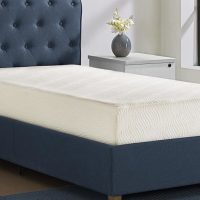Getting a good night’s sleep is essential for good health and well-being, and a good mattress is a key factor in achieving that. However, with so many options on the market, choosing the right mattress can be overwhelming. In this article, we’ll go over some of the most important factors to consider when choosing a good mattress.
- Consider Your Sleeping Position
Your sleeping position is an important factor to consider when choosing a mattress. Side sleepers tend to need a softer mattress that contours to the body, while back and stomach sleepers may prefer a firmer mattress that provides more support. If you’re a combination sleeper who changes positions throughout the night, a medium-firm mattress may be the best option.
- Determine Your Budget
Mattresses can vary greatly in price, from a few hundred dollars to several thousand dollars. Determine your budget before you start shopping for a mattress. Keep in mind that a good mattress is an investment in your health and well-being, and it’s worth spending a little extra for a high-quality mattress that will last for years.
- Consider Mattress Materials
There are several types of mattress materials to choose from, including memory foam, latex, innerspring, hybrid, and air mattresses. Each type of mattress has its own benefits and drawbacks, so it’s important to consider your preferences and needs when choosing a mattress material.
Memory foam mattresses are known for their contouring and pressure relief, while latex mattresses are known for their durability and cooling properties. Innerspring mattresses are typically more affordable and offer good support, while hybrid mattresses combine the benefits of both memory foam and innerspring mattresses. Air mattresses allow you to adjust the firmness of the mattress to your liking.
- Look for a Mattress with Good Support
A good mattress should provide proper support for your body, especially your spine. Look for a mattress that conforms to the natural curvature of your spine and supports the heavier parts of your body, such as your hips and shoulders. A mattress that is too soft or too firm can cause back pain and other issues, so it’s important to find a mattress that provides the right level of support for your body.
- Consider Motion Isolation
If you sleep with a partner, motion isolation is an important factor to consider when choosing a mattress. A mattress with good motion isolation will minimize the transfer of movement from one side of the bed to the other, allowing you and your partner to sleep undisturbed. Memory foam and latex mattresses are known for their excellent motion isolation, while innerspring mattresses may transfer more motion.
- Take Advantage of Sleep Trials
Many mattress manufacturers offer sleep trials, which allow you to try out a mattress for a certain period of time before deciding whether to keep it. Take advantage of sleep trials to test out a mattress in the comfort of your own home and see how it feels over time. Be sure to read the terms and conditions of the sleep trial carefully to make sure you understand the process for returning the mattress if it’s not the right fit for you. Check out Dormeo’s specs
- Consider Your Allergies
If you have allergies, it’s important to choose a mattress that is hypoallergenic and resistant to dust mites and other allergens. Latex and memory foam mattresses are naturally resistant to allergens, while innerspring mattresses may require a hypoallergenic cover to protect against allergens.
- Don’t Be Afraid to Ask Questions
When shopping for a mattress, don’t be afraid to ask questions. Ask the salesperson about the materials used in the mattress, the level of support it provides, and any other concerns you may have. A good salesperson will be knowledgeable about their products and able to help you find the right mattress for your needs.















